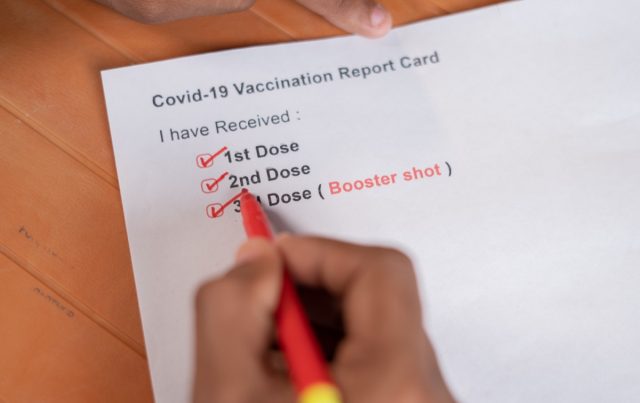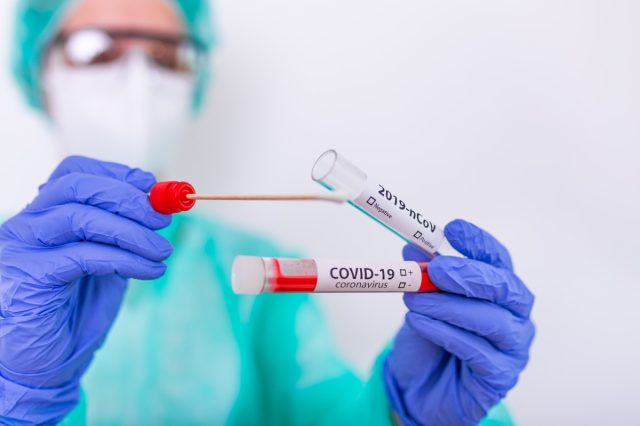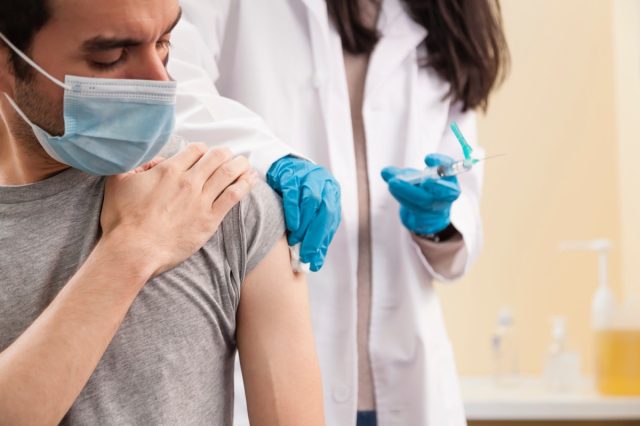If you feel like you know a lot of people who are coming down with COVID-19 these days, you’re not alone. The highly contagious Omicron variant is, in the words of doctors, “everywhere” right now—it’s accounting for 95% of new COVID cases, which are hitting all-time highs nationwide. So how do you know if the symptoms you might be feeling are likely to be COVID, and what should you do then? Here’s the very latest guidance from medical experts. Read on to find out more—and to ensure your health and the health of others, don’t miss these Sure Signs You’ve Already Had COVID.


It’s been widely reported that Omicron seems to be causing less severe illness than previous variants. But this week, experts said that’s not a green light to let your guard down. “In the older age group, it’s still a nasty disease, even if it’s less than the Delta variant,” said Dr. Pamela Davis, a pulmonologist at Case Western Reserve University, on NPR Thursday. “You don’t get off scot-free just because you happen to be infected in the time of Omicron.”
“While Omicron does appear to be less severe compared to Delta, especially in those vaccinated, it does not mean it should be categorized as ‘mild,'” said the World Health Organization’s director-general, Tedros Adhanom Ghebreyesus, this week. “Just like previous variants, Omicron is hospitalizing people and it is killing people.”
In fact, this week COVID hospitalizations surpassed 125,000 nationwide, a high not seen since January 2021, before vaccinations were widely available.
That means it’s especially important to be aware of potential COVID symptoms, so you can take steps to prevent spreading the disease and to seek treatment if necessary.


Scientists with the COVID Symptom Study have been tracking symptoms associated with newly diagnosed COVID cases since early in the pandemic. Their data indicates that the five most reported Omicron symptoms are the same as those associated with Delta—symptoms that may be confused with the common cold, including runny nose, headache, fatigue, sneezing, and sore throat.
People who’ve contracted the Omicron variant have also frequently reported loss of appetite and brain fog, the researchers said.
RELATED: Don’t Enter Here During Omicron Surge, Say Experts


Experts basically agree that if you’ve been vaccinated, Omicron seems to cause less severe symptoms than previous variants. “Personally, I have not admitted a single vaccinated patient [to the hospital] in the last three weeks,” Dr. Natasha Kathuria, an emergency medicine physician in Austin, Texas, told KVUE on Wednesday.
People who have been vaccinated but have not had a booster shot tend to experience more coughing, more fever, and more fatigue than those who have been boosted, Dr. Craig Spencer, an emergency medicine physician at New York-Presbyterian/Columbia University Medical Center, told NBC News.
And as with previous variants, people who are unvaccinated seem more likely to experience symptoms that were common with COVID’s first waves, such as shortness of breath, loss of taste or smell, and body aches.
RELATED: COVID Symptoms Adults Get the Most, Say Experts


Officially, the CDC has not changed its list of the most common COVID-19 symptoms. According to the agency, the most common signs of COVID include:
- Fever or chills
- Cough
- Shortness of breath or difficulty breathing
- Fatigue
- Muscle or body aches
- Headache
- New loss of taste or smell
- Sore throat
- Congestion or runny nose
- Nausea or vomiting
- Diarrhea
RELATED: Signs You Need to Lose “Visceral Fat”


How do you tell if your cough, sore throat or muscle aches are a cold, the flu or COVID? You really can’t without a COVID test, experts say.
“When you’re in a surge like we are right now and COVID is everywhere—and it is everywhere right now—if you have trouble getting a test, a take-home test particularly, and you do have symptoms, the prudent thing to do is just assume you have COVID and isolate away from other people. That’s the safest thing to do right now,” said Dr. Joseph Kanter, Louisiana’s state health officer and medical director, on Thursday.
Feeling ill and unsure if you should seek medical care? The CDC has published a “coronavirus self checker” where you can answer a series of questions to determine whether you might need further treatment.
RELATED: Alarming Signs of a Cancer Problem, Say Experts


Follow the fundamentals and help end this pandemic, no matter where you live—get vaccinated ASAP; if you live in an area with low vaccination rates, wear an N95 face mask, don’t travel, social distance, avoid large crowds, don’t go indoors with people you’re not sheltering with (especially in bars), practice good hand hygiene, and to protect your life and the lives of others, don’t visit any of these 35 Places You’re Most Likely to Catch COVID.